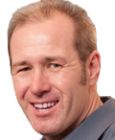Dreaming
Sons in Search of Fathers, Fathers in Search of Sons
We need to accept our differences to find one another.
Posted October 19, 2018
In An Odyssey: A Father, a Son, and an Epic, Daniel Mendelsohn gives a moving account of his relationship with his father. At age eighty-one, Mendelsohn’s father wants to take the freshman seminar on The Odyssey that his son teaches at Bard College. The book details the seminar and the cruise that father and son took afterwards, retracing The Odyssey.
Mendelsohn’s reflections show that our fathers are not open books, nor are they to be interpreted simply as we please. We do not know our fathers fully even when they have been with us all our lives, even when they have been present emotionally and not just physically. We know them only as fathers, not as the world knows them. Of course, we may think we know them as others do if we have the opportunity to see them interacting with friends, relatives, coworkers, and strangers. Mendelsohn observed his father interacting with his students and was embarrassed, thinking that the students found the old man to be nothing but a cranky distraction. In fact, the students e-mailed their professor after the semester to tell him that they found his father engaging and intelligent—they had learned a lot from him. Likewise, the people on the cruise found his father charming despite his rough ways and poor table manners.
Mendelsohn’s father was not particularly open with his son, but even when fathers are open and honest they still keep secrets. We may think we know the reasons why our fathers are the way they are, the environmental forces that shaped them. But as Mendelsohn discovers, we are not always right. Mendelsohn had thought that much of his father’s inward disposition resulted from growing up in a small apartment, but after his father’s death an uncle revealed that such was not the case. The father was not crowded but mostly alone—with his own father gone for weeks at a time for work and his mother working long hours and both brothers usually out of the house. Our fathers remain a mystery, concealing hidden passageways. It has become a truism that our spouses can turn out to be strangers after long periods of marriage, but the temptation remains to think that we have our fathers all figured out.
The Homeric Greeks believed that few sons are the equal of their fathers. Such reverence for the older generation is certainly misplaced, though. Our fathers and forefathers deserve our respect for the hardships they endured and the feats they accomplished, but we need not see ourselves as less. In fact, of course, many fathers invest their hopes and dreams in their sons (and daughters). For many, the son is the only man they wish to surpass them in every way. Much like Mendelsohn’s father, all fathers have regrets about their own lives, paths not taken and dreams not achieved.
Fathers are tempted to live vicariously through their sons and to push their sons to achieve what they did not. Mendelsohn’s father regretted stopping high school Latin before reading Virgil’s Aeneid, sweetly telling his son “You can read it for me.” Well, our sons can’t literally do things for us in that way. It seems an unfair burden to place on our sons that they should achieve something we did not. In the case of the Aeneid, Mendelsohn was going to read it anyway as a Classics major in college—it was not a burden his father placed on him. Mendelsohn’s father was a mathematician, though, and he often expressed disappointment at his son’s lack of mathematical ability. He may have assumed that his own mathematical talent would be passed on to his son, but it was not. Our sons are not us. They do not necessarily inherit our talents, abilities, and affinities. But the good news is that they do not necessarily inherit our faults, failings, or weaknesses either. We cannot and should not try to make them into new and improved versions of ourselves. We need to let them be who they are, let them walk their own paths.
This advice calls to mind a poignant scene in Hermann Hesse’s Siddhartha in which the title character asks his father’s permission to leave home and abandon his studies as a Brahmin to join a group of wandering ascetics. The father refuses the request, and the son refuses to disobey. But after the son stands still for hours, the father relents, telling his son to go and join the ascetics. The father tells his son that if he discovers the enlightenment he seeks, then he should come back and teach it to his father. However, if he does not find what he seeks, then he should return—and he will be welcomed back. This was an ingenious and intuitive piece of parenting. Siddhartha’s father knew that he could keep his son in body but not in mind. He would have to let his son go if his son was really to be his.
However, as readers of Siddhartha know, the title character never returns home. He fails to find what he is looking for among the ascetics, and then goes to the other extreme of worldly, sensuous indulgence before finally learning the path to enlightenment from an old ferryman. Siddhartha’s father must have longed for his lost son all those many years, but Siddhartha gave his father no thought until he was a father himself and caught sight of his own reflection in a river. What he saw in the reflection was his father’s face. Siddhartha’s beloved son had left him, much as he had left his own father decades before. The pain of loss and longing in the scene is nearly unbearable.
Unlike Homer’s Odyssey, Hesse’s Siddhartha does not reunite father and son. Every time I re-read Siddhartha to teach the book in class, I am left wondering what happens to Siddhartha’s son after he runs away. Siddhartha sees his own pride and arrogance in the boy, and he wants to protect his son from making the same mistakes he did as a young man. This would be impossible, though. It is a cliche because it is true: we all have to make our own mistakes. In my sequel, Little Siddhartha, I imagine the son of Siddhartha becoming a rich and successful entrepreneur, who then has a son of his own, Rahula, who disappoints his father by treading a spiritual path. Ultimately, though, all three generations are reunited, much as they are in The Odyssey.
Siddhartha may have understood his son well, but it would be a mistake to believe he understood his son fully. There is a temptation to think that a father can know his son better than the son can know the father. This makes sense because the father can know the history of his son’s life to an extent that the son cannot know the father’s life. Mendelsohn says, “A father makes his son out of his flesh and out of his mind and then shapes him with his ambitions and dreams, with his cruelties and failures, too. But a son, although he is of his father, cannot know his father totally, because the father precedes him; his father has always already lived so much more than the son has …. The father knows the son whole, but the son can never know the father” (294). Much still remains hidden, though, and much may be obscured when the father thinks that his own experience is an objective lens through which to see his son’s experience.
Despite the limitations, trying to understand your son can help you to understand your father. Accepting your son’s differences and supporting him in endeavors that you would not choose for him or for yourself, can help you understand how your own father struggled to accept and support you.
Of course, much of what I have written here can be applied to mothers and daughters, mothers and sons, fathers and daughters. Maybe not all of it, though. As the daughter looks to the mother to learn how to become a woman, so the son looks to the father to learn how to become a man. And while the differences between the genders in contemporary America are not as rigid as they were in Homeric Greece, differences still remain.

William Irwin is the author of a novel about fathers and sons, Little Siddhartha: A Sequel.




